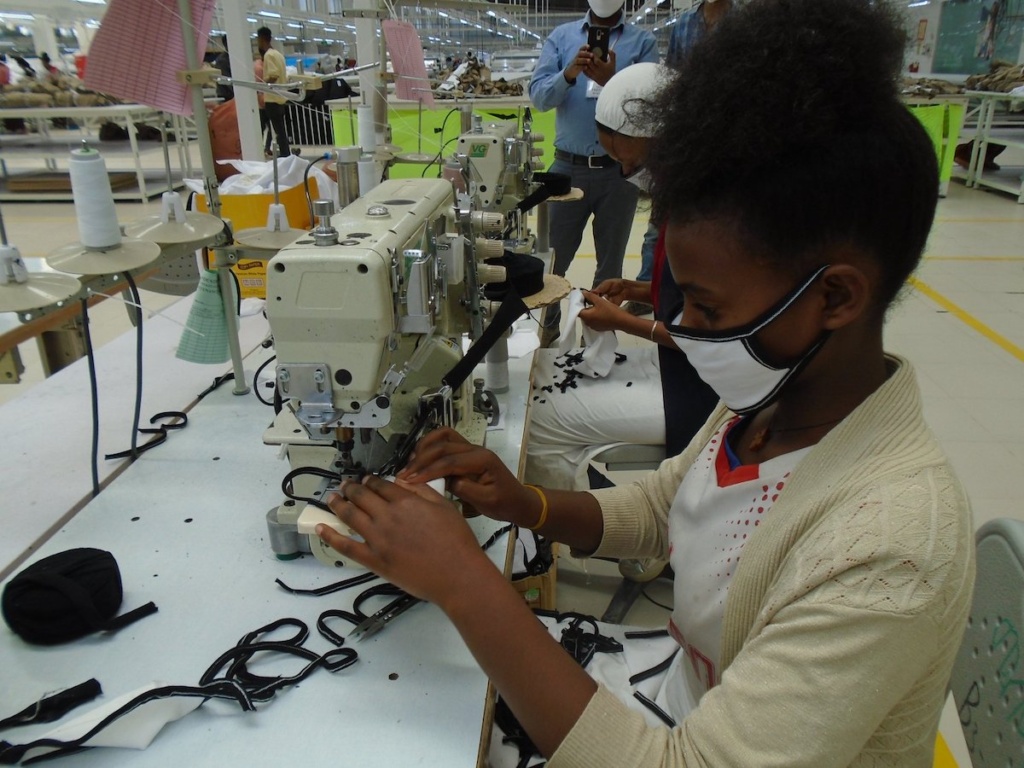Mesele Thair is pictured at work sewing masks in Ethiopia. She is among the young beneficiaries of a rural project that has been involved in the mask production within some of the major textile companies in the Tigray Region. Among 531 students graduated in textile technical training, 115 of them are now engaged in mask production in four companies.
This initiative has been possible thanks to the SINCE – Stemming Irregular Migration in Northern and Central Ethiopia funded by the EU Trust Fund for Africa, of which this DEAL project on vocational training is part, which involves 7 vocational training schools both public and private and many young people, potential migrants or returning migrants, who benefit from training to find an alternative to irregular migration through work. Since the beginning of the project 1292 beneficiaries have completed a training course, of which 903 have also found work.
The “Stemming Irregular migration in Northern and Central Ethiopia—SINCE” Program is funded by the European Union and implemented by the Italian Ministry of Foreign Affairs and International Cooperation, the Embassy of Italy in Ethiopia and the Addis Ababa Office of the Italian Agency for Development Cooperation (AICS). The overall objective of SINCE is to contribute to reduce irregular migration from Northern and Central Ethiopia by improving the living conditions of the most vulnerable population, including potential migrants and returnees with specific focus on youth and women.
The specific objective is to create greater economic and employment opportunities, by establishing inclusive economic programs that foster employment opportunities, especially for young people and women with a focus on rural towns and urban areas, particularly Addis Ababa, in the most migration-prone regions (Amhara, Oromia, Southern Nations, Nationalities and Peoples’ Region, Tigray) of Ethiopia, including vocational training, creation of micro and small enterprises and start-up of small livelihood activities. Some actions will in particular support returnees after their return to their places of origin.

